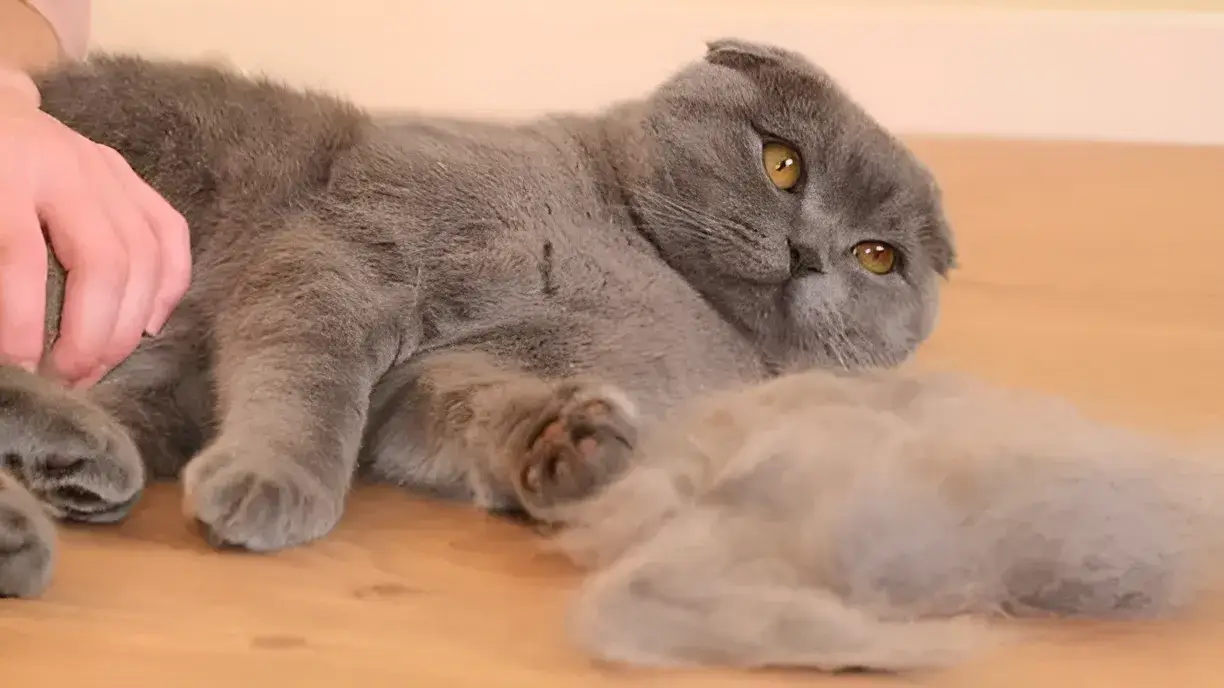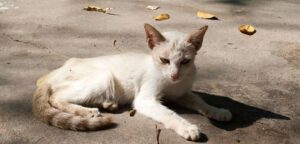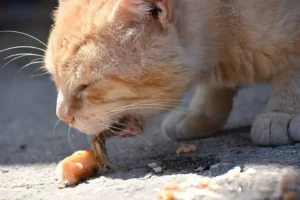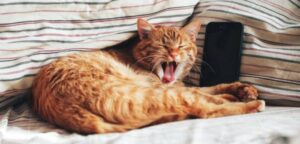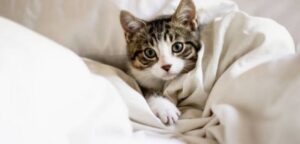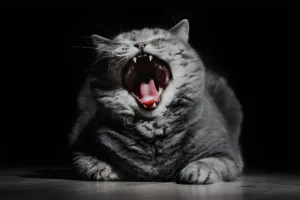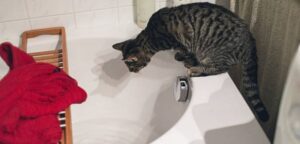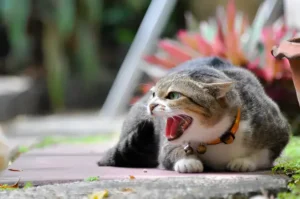It’s natural to feel concerned if your beloved senior cat starts shedding more than usual. While some age-related fur thinning might occur, several factors, from simple aging to potential health issues, can cause hair loss. Knowing the signs helps you address it appropriately.
Why is My Elderly Cat Losing Hair?
1. Normal Aging: Just like humans, cats may experience some thinning of their fur as they age. This is generally a gradual process.
2. Hormonal Imbalances: Conditions like hyperthyroidism (overactive thyroid) or Cushing’s disease (overproduction of cortisol) disrupt hormone balance and can lead to hair loss.
3. Nutritional Deficiencies: An imbalanced diet lacking essential nutrients can contribute to poor coat health and shedding in senior cats.
4. Parasites: Fleas, mites, and ringworm can irritate your cat’s skin, causing excessive scratching and hair loss.
5. Allergies: Environmental or food allergies can trigger skin issues and make your cat itch, leading to hair loss.
6. Stress/Anxiety: Significant changes in routine, environment, or the presence of other pets can make your senior cat anxious, causing them to groom excessively and lose hair.
7. Kidney or Liver Disease: These conditions can impair waste removal within a cat’s body, leading to toxins affecting the skin and coat.
Specific Symptoms to Watch For
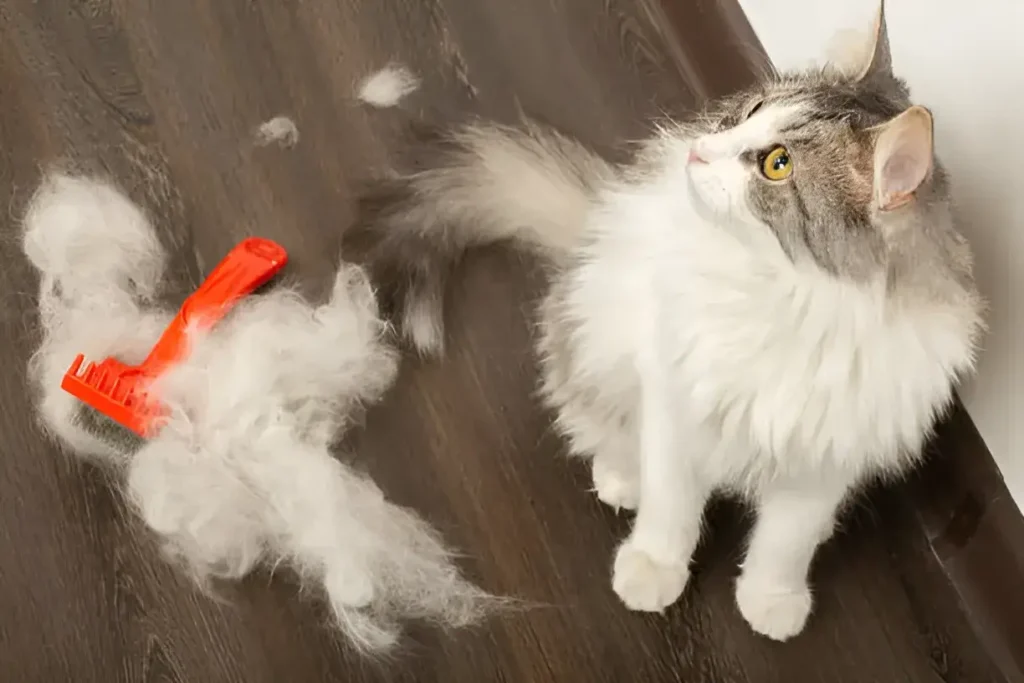
Beyond the hair loss itself, keep an eye out for:
- Excessive licking or grooming
- Dandruff or flaky skin
- Redness, irritation, scabs, or sores
- Matted fur
- Specific patterns of hair loss (e.g., symmetrical hair loss on both sides, patchy baldness)
If you notice any of these signs, it’s important to schedule a vet visit.
When to See Your Vet
While some hair loss may be normal, it’s best to consult your vet if you notice:
- Sudden or significant hair loss
- Bald patches or irritated skin
- Changes in appetite, thirst, or behavior
Your vet will perform a physical exam, possibly take blood tests, or skin samples to pinpoint the cause.
Caring for Your Senior Cat with Hair Loss
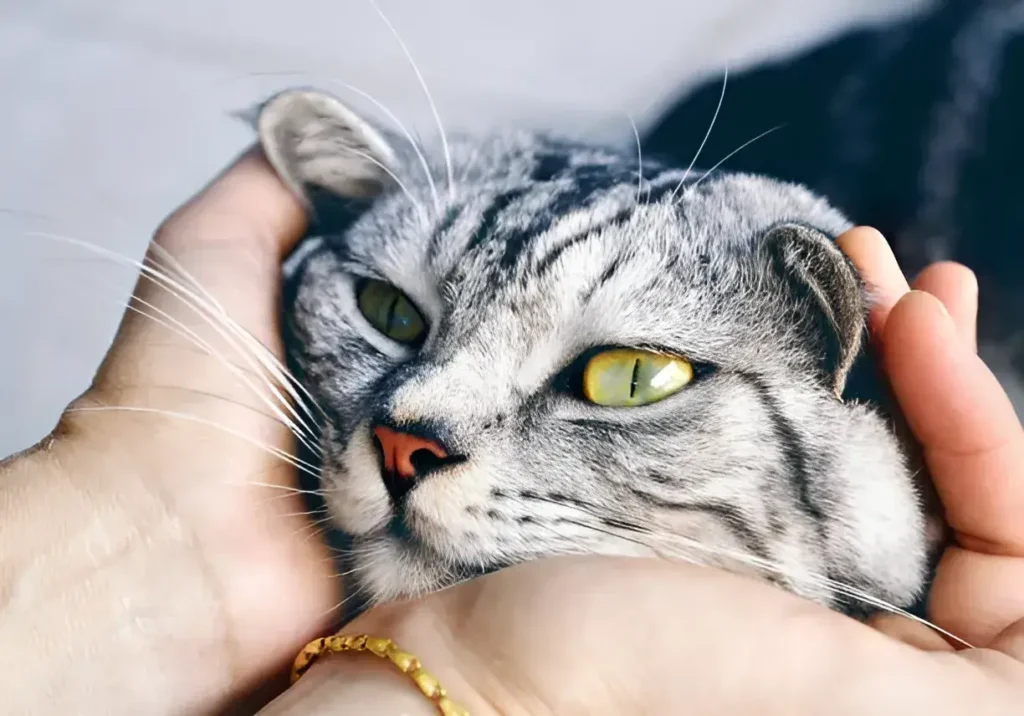
Once your vet identifies the underlying cause, they’ll recommend a treatment plan. Here’s how you can help manage the situation:
- Medication: Address health conditions like hyperthyroidism or allergies with medications prescribed by your vet.
- Dietary Changes: Consult your vet about a diet formulated for senior cats to address any nutritional deficiencies.
- Parasite Prevention: Use regular flea and tick control, and treat infestations as needed under vet guidance.
- Stress Management: Provide a calm and consistent environment for your cat, with cozy hiding spots and a predictable routine.
- Grooming Help: Assist your cat with grooming if they’re getting less flexible, using a soft brush and gentle strokes.
Cat-Friendly Home Adjustments
As cats age, they may become less agile. Make their environment comfortable by:
- Providing easily accessible food and water bowls
- Using low-entry litter boxes to minimize joint strain
- Placing non-slip surfaces in areas where they tend to walk
- Creating warm, draft-free sleeping spots
- Minimizing household noise and sudden changes
Skin Cancer Awareness
Although less common than other causes, senior cats can develop skin cancer. Be vigilant for unusual lumps, bumps, or sores that don’t heal. A vet visit is crucial if you spot concerning skin changes.
Conclusion
Though concerning, hair loss in senior cats is often manageable. Working with your vet for proper diagnosis and treatment, along with tailored home care, helps restore your furry companion’s coat and overall well-being.
The photo featured below the post headline is Credit: Family video/istockphoto
I hope you find this post helpful and informative. If Yes’ feel free to share it with your friends!
Frequently Asked Question
Is hair loss in senior cats always a cause for concern?
Some hair thinning is natural with age. However, sudden hair loss, bald spots, or other skin changes warrant a vet checkup to rule out underlying health issues.
Can I prevent hair loss in my senior cat?
While you can’t completely stop aging, a high-quality diet, regular vet checkups, parasite prevention, and a stress-free environment go a long way in minimizing excessive hair loss.
Do cats lose their hair when dying?
Hair loss can be a sign of declining health in cats of any age. If your cat is nearing the end of their life, hair loss may occur alongside other changes in appetite, behavior, and energy levels.
Is It Normal for Older Cats to Shed More?
Yes, some fur thinning is a natural part of the aging process. However, if the hair loss is sudden, excessive, or involves bald patches, it’s time to consult your veterinarian as it could signify an underlying issue.
Are there home treatments for cat hair loss?
Don’t attempt home remedies without a vet’s diagnosis. Treating the underlying cause is crucial. Your vet may recommend supplements like omega-3 fatty acids for healthy skin only after other medical issues are ruled out.
My Cat’s Belly and Legs Are Losing Fur – Why?
Hair loss on these specific areas can stem from various causes. Possible culprits include allergies (environmental or food-based), excessive grooming due to stress or anxiety, parasite infestations, or hormonal imbalances. A thorough veterinary evaluation is needed to pinpoint the reason.
Why is my cat losing hair on the inside of her back legs?
Hair loss on the inside of the back legs can be a sign of discomfort or pain in the hips or lower back, causing your cat to overgroom that area. Fleas and allergies should also be considered.
Why is my older cat’s fur coming out in clumps?
Clumpy fur often indicates a lack of proper grooming. Senior cats may experience arthritis or stiffness, making it harder to reach all areas of their body.
What Triggers Patchy Fur Loss in Older Cats?
Patchy hair loss can be alarming. Potential causes include allergies, fungal skin infections like ringworm, parasites, stress and anxiety, or even injuries that your cat has sustained.
Why my cat has bald patches near the base of the tail.
Flea Infestation: Fleas often concentrate around the base of the tail, causing intense itching and hair loss. Look for signs of “flea dirt” (dark specks) in the area.
Allergies: Cats can be allergic to food, environmental irritants, or even flea bites themselves, leading to itchy skin and hair loss at the tail base.
Stud Tail (Unneutered Males): Overactive oil glands at the tail base can cause greasy buildup, inflammation, and hair loss in unneutered male cats.

